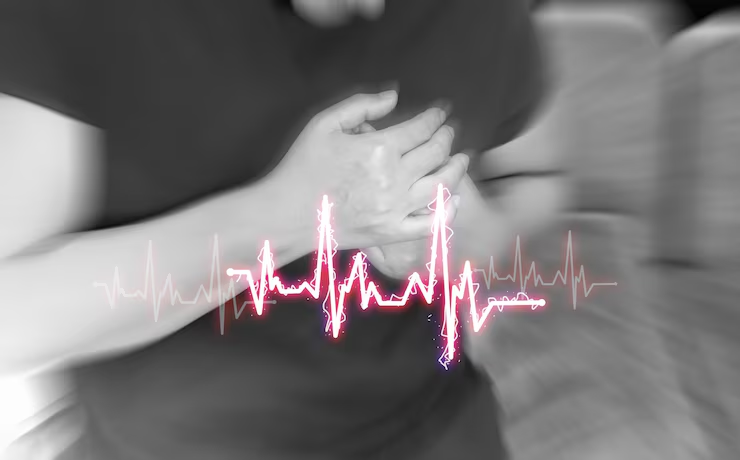In today’s fast-paced world, it is very easy to fall victim to stress and anxiety, which can have a negative impact on both our mental and physical health. One of the most worrying symptoms is the onset of palpitations, which are the disturbing sensations of your heart skipping, pounding, or skipping a beat. But don’t worry; Despite the turmoil, there are honest answers to help you weather the storm.
Understanding the Stress-Heart Palpitations Connection
Before we get to the treatments, let’s examine the complex relationship between stress and heart palpitations. When stress levels increase, our body enters a state of high alertness, causing a series of physiological reactions such as increased heart rate and blood pressure. Chronic stress can have long-term effects on our cardiovascular system, leading to palpitations, irregular heartbeats and, in extreme cases, heart disease.
Foods That Increase Heartbeat: Fact or Fiction?
While stress obviously plays a role in causing palpitations, it’s important to note that our food choices can also impact heart rate. Certain foods and beverages, including caffeine, alcohol, and foods high in sugar, have been shown to worsen palpitations in sensitive people. By being careful with our intake and choosing heart-healthy options, we can improve our heart health and reduce heart palpitations.
wave effect of heartbeats
In addition to physical discomfort, heartburn can have a significant impact on our mental and emotional health. The worry and anxiety associated with palpitations can start a vicious cycle, increasing stress and prolonging the disease. To break out of this pattern and take control of our health, we need to focus on the psychological components and build coping skills.
Heartfelt Solutions: Strategies for Managing Anxiety
Now, let’s take a look at some practical ways to deal with anxiety and nervousness:
1. Mindfulness. Meditation: Spend a few minutes a day quieting your thoughts, focusing on your breathing, and developing a sense of peace amidst the chaos.
2. Physical activity: Regular exercise helps release endorphins, reduce stress hormones, and improve overall heart health. Whether it’s doing yoga in your living room, running or dancing, find out what makes you happy and motivates you.
3. Healthy eating habits: Choose a balanced diet rich in fruits, vegetables, whole grains and lean meats. Limit your use of stimulants like caffeine and alcohol, and be aware of how specific foods can alter your heart rhythm.
4. Stress management techniques: To relieve stress and find inner peace, try deep breathing exercises, progressive muscle relaxation, or journaling.
5. Asking for help: If you need help or advice, don’t be afraid to reach out to loved ones, friends, or a mental health professional. You don’t have to face this path alone.
Although the pressures of contemporary life can sometimes be overwhelming, there are serious treatments available to help us manage the effects of anxiety and heartburn. We can foster resiliency and survive in today’s demanding environment by prioritizing self-care, developing good habits, and seeking help when we need it.



